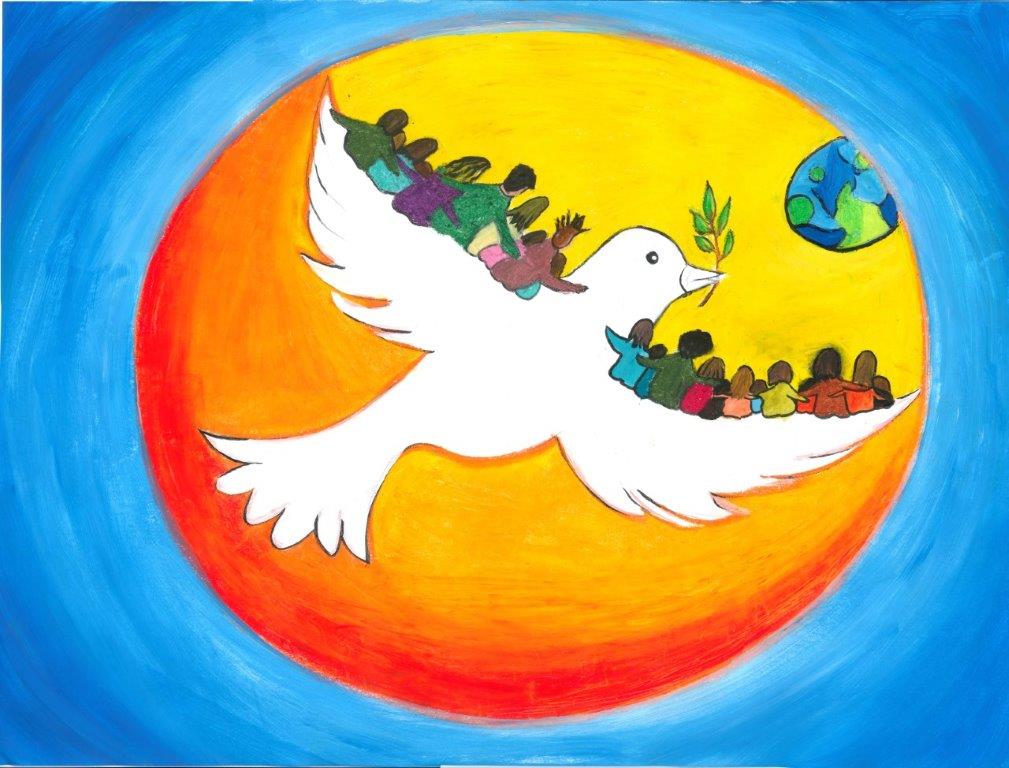The term “cultural exchange” evokes a tapestry of intricate interactions and shared experiences between diverse societies. At its core, cultural exchange refers to the process through which individuals or groups from different cultural backgrounds engage with one another, fostering understanding, appreciation, and collaboration. This concept transcends mere tourism; it encompasses a profound exchange of ideas, beliefs, traditions, and practices, enriching the lives of those involved.
But have you ever pondered the inherent challenges that come with such exchanges? Picture this: you find yourself in a foreign land, eager to immerse in the local culture. Yet, the nuances of language, tradition, and social norms pose a barrier, leading to misunderstandings. How can we navigate these complexities without diminishing the integrity of the cultures we seek to engage with?
To delve deeper, let’s dissect the multifaceted dimensions of cultural exchange. Historically, cultural exchange has been a catalyst for progress. From the Silk Road’s intricate web of trade to the more contemporary World Fairs, these platforms have ushered in new ideas and innovations. They exemplify the premise that exposure to different cultural paradigms can lead to a renaissance of thought and creativity. However, while this historical lens paints a rosy picture, there are underlying tensions that merit examination.
One of the most significant aspects of cultural exchange is its role in promoting cross-cultural dialogue. Through sharing personal narratives, art, cuisine, and philosophy, participants can cultivate a robust understanding of each other’s worldviews. This engagement can dismantle stereotypes and build empathy. Yet, we must ask ourselves: is it enough? Genuine cultural exchange should not merely scratch the surface. It must aim for depth, fostering long-lasting relationships. Superficial interactions can lead to cultural appropriation, where elements of one culture are appropriated by another without understanding their significance. This dynamic raises ethical questions about ownership and authenticity.
Moreover, modern advancements in technology have transformed the landscape of cultural exchange. With the advent of social media and digital platforms, individuals can connect with diverse cultures without geographical limitations. This has resulted in an unprecedented level of interaction and exposure. However, the digital realm also presents challenges. The risk of misunderstandings increases in virtual contexts, where non-verbal cues are lost, and narratives can be manipulated. Are we truly engaging with one another or merely consuming curated representations of each other’s cultures?
Education serves as a vital conduit for cultural exchange. Universities and educational institutions facilitate study abroad programs, providing students with firsthand experiences of different cultures. This immersion can be invaluable for personal development and global citizenship. Yet, the challenge remains: how inclusive are these programs? Access to international cultural experiences is often limited to those with financial means. Hence, the question arises: should we strive for equitable cultural exchange opportunities that resonate across various socioeconomic landscapes?
Additionally, arts and cultural festivals act as vibrant arenas for cultural expression and exchange. These events celebrate diversity and invite participants to engage with various artistic traditions. They allow communities to showcase their heritage and narratives, promoting cultural pride. Yet, one must consider the environmental implications of such gatherings. Sustainability in the context of cultural exchange should not be overlooked. How can we celebrate diversity while being conscientious stewards of the planet?
Another pertinent aspect of cultural exchange is the influence of globalization. As our world becomes increasingly interconnected, cultural boundaries blur. While this offers opportunities for shared experiences, it also raises alarms about cultural homogenization. Are we on the precipice of losing unique cultural identities in the face of this global tide? It is essential to strike a balance between embracing global culture and preserving individual traditions.
The importance of language cannot be understated in cultural exchanges. Language is the embodiment of culture, encapsulating its values and nuances. When engaging in cultural exchange, learners often encounter new languages, presenting both a thrilling opportunity and a formidable challenge. The intricacies of language learning are often daunting, yet they hold the key to deeper understanding and connection. The playful question persists: how many languages are enough to appreciate the multifaceted beauty of a culture? Is fluency essential, or can we find common ground through gestures and laughter?
Cultural exchange also extends to culinary traditions, which serve as a delicious conduit for understanding. Food is often considered the heart of a culture, and culinary experiences can reveal much about a society’s values and history. However, we must contemplate whether we are merely engaging in gastronomic tourism or truly appreciating the stories behind the dishes we savor.
Lastly, the role of cultural ambassadors—individuals who facilitate exchanges through their personal experiences—cannot be overlooked. They bridge gaps between cultures, fostering dialogue and understanding. Yet, their task is fraught with responsibility. Cultural ambassadors must navigate their identities, ensuring they serve as bridges rather than barriers. Can we empower more voices to partake in this important role, ensuring that diverse perspectives are represented in the cultural exchange narrative?
In conclusion, cultural exchange embodies a complex interplay of interaction, understanding, and reflection. While it offers profound opportunities for connection, it also presents challenges that warrant careful consideration. Engaging with diverse cultures is not a mere pastime; it is an ongoing journey that invites us to examine our perceptions, question our biases, and embrace our shared humanity. As we venture into this vibrant world of cultural exchange, let’s do so with open hearts and mindful intentions, striving for meaningful connections that transcend boundaries. After all, in this globalized society, the richness of our shared experience lies in the diversity of our cultural fabric.
